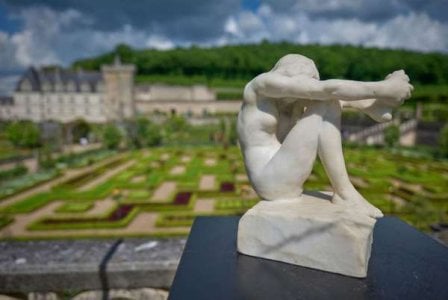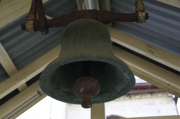You Could Be Sitting on a Fortune: This Family's 'Fake' Sculpture Just Sold for $1.5 Million
By
Danielle F.
- Replies 0
Imagine dusting your piano, glancing at a sculpture you’ve always assumed was a mere imitation, and then discovering it’s actually a lost masterpiece worth nearly $1.5 million. That’s exactly what happened to one unsuspecting family in central France, and their story is a timely reminder for all of us: sometimes, the treasures in our homes are far more valuable than we ever imagined!
A Masterpiece Hiding in Plain Sight
The sculpture in question, Le Désespoir (Despair), was created by the renowned French artist Auguste Rodin—yes, the very same Rodin behind the iconic The Thinker. For almost 120 years, this particular piece had vanished from public view, quietly perched atop a family’s piano, surrounded by family photos and memories. The owners, convinced it was just a copy, never gave it much thought. 'It’s a fake, it’s a copy,' they would say, according to auctioneer Aymeric Rouillac.
But as fate would have it, Rouillac’s curiosity was piqued. He noticed the exquisite detail—the lifelike muscles, the perfectly rendered vertebrae along the back. 'The back, the muscles, they are perfect,' he marvelled. Sensing there might be more to this sculpture than met the eye, he sought the expertise of the Comité Rodin, the official body that authenticates Rodin’s works.
A Stunning Revelation
Jerome Le Blay, co-founder of the Comité Rodin, needed only a moment to confirm what Rouillac suspected: this was no copy. 'I realised in a second that it was real. I had absolutely no doubt,' Le Blay said. Not only was the sculpture genuine, but it was also 'exceptionally well made,' dating back to a period when Rodin was personally involved in the final touches of his marble works.
Rodin, who lived from 1840 to 1917, is celebrated for his ability to breathe life into stone. Le Désespoir was originally modelled in 1890 and sculpted from marble between 1892 and 1893. Measuring just 28.5cm by 15cm by 25cm, it was intended as part of Rodin’s monumental project, *The Gates of Hell*, which features over 200 figures and groups.
Why Is This Sculpture So Special?
While Rodin’s bronze works are relatively common at auction—thanks to the Musée Rodin’s permission to continue casting them after his death—his marble sculptures are a different story. Most are held in major museums, and very few remain in private hands. 'Marbles in private collections are rare,' Le Blay explained, adding that this piece has a 'kind of magic' because it resurfaced after so many decades.
The timing of the sculpture’s creation is also significant. It hails from what experts consider one of the best periods of Rodin’s career, before his fame led to a surge in production and delegation to assistants. In those years, Rodin was intimately involved in the creative process, ensuring each piece was a true work of art.
A Life-Changing Auction
When the sculpture finally went under the hammer, the auction was described as 'passionate.' The winning bid—860,000 euros, or nearly $1.5 million—came from a young banker on the US West Coast. For the family who had lived with the sculpture for generations, it was a life-changing windfall.
Could You Be Sitting on a Hidden Treasure?
This story is a wonderful reminder that sometimes, the most valuable things are hiding in plain sight. Many of us have inherited knick-knacks, paintings, or sculptures from relatives, and it’s easy to dismiss them as mere curiosities. But as this family’s experience shows, it’s always worth taking a closer look—especially if you have items with a bit of age or an interesting backstory.
If you’re curious about something in your own home, consider having it appraised by a reputable expert or auction house. You never know—you might be sitting on a fortune!
Aussie Connections: Hidden Gems Down Under
Australia has its own history of art discoveries and hidden treasures. From rare colonial paintings found in op shops to valuable Indigenous artworks tucked away in private collections, there’s a rich tradition of unexpected finds. In fact, several Australians have made headlines after discovering valuable antiques and artworks in their homes or at local markets.
If you’re a member of the Seniors Discount Club, you might even remember stories of rare coins, vintage jewellery, or first-edition books turning up in the most unlikely places. It just goes to show: a little curiosity and a willingness to investigate can pay off—sometimes quite literally!
Tips for Identifying Potential Treasures
We’d love to hear from you! Have you ever discovered something valuable or unusual in your home? Maybe you have a family heirloom with a mysterious past, or perhaps you’ve always wondered about that old painting in the hallway. Share your stories and photos in the comments below—who knows, you might inspire someone else to take a closer look at their own treasures!

And remember, next time you’re dusting the shelves or rearranging the mantelpiece, keep an eye out. You never know what masterpiece might be hiding in plain sight!
MORE HERE: Rare $2 coin could sell for thousands—do you have one in your pocket?
A Masterpiece Hiding in Plain Sight
The sculpture in question, Le Désespoir (Despair), was created by the renowned French artist Auguste Rodin—yes, the very same Rodin behind the iconic The Thinker. For almost 120 years, this particular piece had vanished from public view, quietly perched atop a family’s piano, surrounded by family photos and memories. The owners, convinced it was just a copy, never gave it much thought. 'It’s a fake, it’s a copy,' they would say, according to auctioneer Aymeric Rouillac.
But as fate would have it, Rouillac’s curiosity was piqued. He noticed the exquisite detail—the lifelike muscles, the perfectly rendered vertebrae along the back. 'The back, the muscles, they are perfect,' he marvelled. Sensing there might be more to this sculpture than met the eye, he sought the expertise of the Comité Rodin, the official body that authenticates Rodin’s works.
A Stunning Revelation
Jerome Le Blay, co-founder of the Comité Rodin, needed only a moment to confirm what Rouillac suspected: this was no copy. 'I realised in a second that it was real. I had absolutely no doubt,' Le Blay said. Not only was the sculpture genuine, but it was also 'exceptionally well made,' dating back to a period when Rodin was personally involved in the final touches of his marble works.
Rodin, who lived from 1840 to 1917, is celebrated for his ability to breathe life into stone. Le Désespoir was originally modelled in 1890 and sculpted from marble between 1892 and 1893. Measuring just 28.5cm by 15cm by 25cm, it was intended as part of Rodin’s monumental project, *The Gates of Hell*, which features over 200 figures and groups.
Why Is This Sculpture So Special?
While Rodin’s bronze works are relatively common at auction—thanks to the Musée Rodin’s permission to continue casting them after his death—his marble sculptures are a different story. Most are held in major museums, and very few remain in private hands. 'Marbles in private collections are rare,' Le Blay explained, adding that this piece has a 'kind of magic' because it resurfaced after so many decades.
The timing of the sculpture’s creation is also significant. It hails from what experts consider one of the best periods of Rodin’s career, before his fame led to a surge in production and delegation to assistants. In those years, Rodin was intimately involved in the creative process, ensuring each piece was a true work of art.
A Life-Changing Auction
When the sculpture finally went under the hammer, the auction was described as 'passionate.' The winning bid—860,000 euros, or nearly $1.5 million—came from a young banker on the US West Coast. For the family who had lived with the sculpture for generations, it was a life-changing windfall.
Could You Be Sitting on a Hidden Treasure?
This story is a wonderful reminder that sometimes, the most valuable things are hiding in plain sight. Many of us have inherited knick-knacks, paintings, or sculptures from relatives, and it’s easy to dismiss them as mere curiosities. But as this family’s experience shows, it’s always worth taking a closer look—especially if you have items with a bit of age or an interesting backstory.
If you’re curious about something in your own home, consider having it appraised by a reputable expert or auction house. You never know—you might be sitting on a fortune!
Aussie Connections: Hidden Gems Down Under
Australia has its own history of art discoveries and hidden treasures. From rare colonial paintings found in op shops to valuable Indigenous artworks tucked away in private collections, there’s a rich tradition of unexpected finds. In fact, several Australians have made headlines after discovering valuable antiques and artworks in their homes or at local markets.
If you’re a member of the Seniors Discount Club, you might even remember stories of rare coins, vintage jewellery, or first-edition books turning up in the most unlikely places. It just goes to show: a little curiosity and a willingness to investigate can pay off—sometimes quite literally!
Tips for Identifying Potential Treasures
- Check for signatures or markings: Artists often sign or mark their works in subtle places.
- Research the item’s history: Ask family members about its origins or look for old receipts and documents.
- Consult an expert: Local auction houses, museums, or antique dealers can offer valuable insights.
- Don’t dismiss the unusual: Sometimes, the oddest items turn out to be the most valuable.
We’d love to hear from you! Have you ever discovered something valuable or unusual in your home? Maybe you have a family heirloom with a mysterious past, or perhaps you’ve always wondered about that old painting in the hallway. Share your stories and photos in the comments below—who knows, you might inspire someone else to take a closer look at their own treasures!
Key Takeaways
- A marble sculpture by French artist Auguste Rodin, believed by its French family owners to be a fake, has sold at auction for nearly $1.5 million after being rediscovered on their piano.
- The piece, titled Le Desespoir, was originally modelled in 1890 and sculpted from marble between 1892 and 1893 as part of Rodin’s monumental project The Gates of Hell.
- Experts from the Comite Rodin authenticated the sculpture, describing it as 'exceptional' and 'extremely well made', dating from a peak period in Rodin’s career before his fame exploded.
- Marble sculptures by Rodin are rarely found in private collections, making this rediscovery and sale—secured by a young American banker in a 'passionate' auction—all the more remarkable.
MORE HERE: Rare $2 coin could sell for thousands—do you have one in your pocket?








